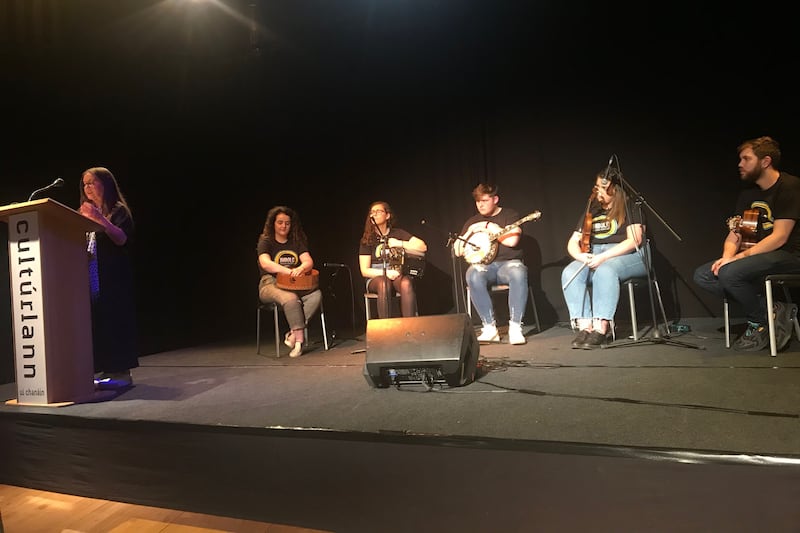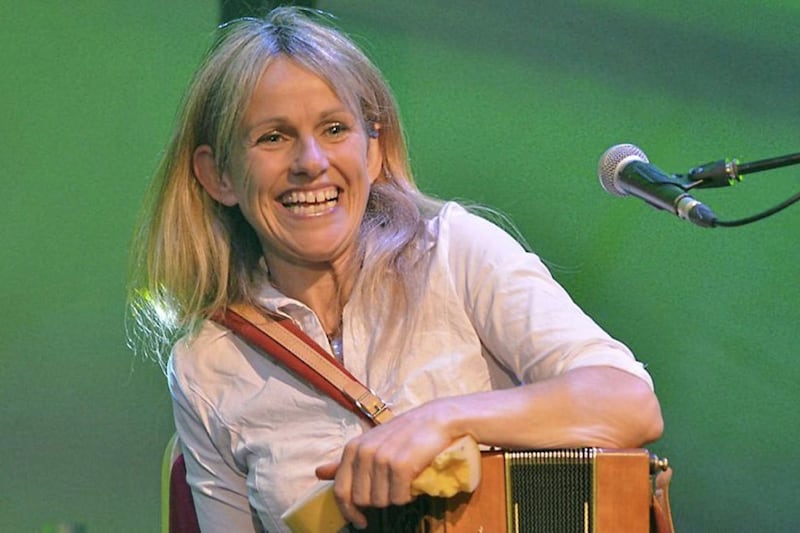IRISH traditional music has come a long way in the past half century, moving from the scornful days when it was considered 'tinker music' to the point where it is played on concert stages throughout the world – although many people would prefer that is stayed in its original pristine state.
While the number of players, their age profile, the standard of playing, the social status of the music and the ditching of the dichotomy between purist and experimentalist have led to the current hale and healthy state of trad music, another new way of looking at traditional music has come to the fore – as a driver of social regeneration.
Arguably, the best example of that is Derry where nearly half a million people, from infants to nonagenarians, sampled the stunning atmosphere of the All-Ireland Fleadh back in 2013. Of course, Derry has always seen itself as a city of music and song. There has been a long tradition of fine singers and musicians as far back as anyone can remember.
“I think that was best demonstrated when Derry was City of Culture in 2013 and Fleadh Cheoil na hÉireann was the culmination of that, with an estimated 430,000 people coming to the city to play, listen to and celebrate traditional music and culture,” says Eibhlín Ní Dhochartaigh, who chaired the Fleadh and who is the director of Derry’s latest music festival, Imbolc, which starts this weekend.
“It was great for Derry because it brought all the communities together, which was incredible for a city that has been divided for so long of its history. I think Derry showed itself really to be very open-minded and a very diverse city that was able to come together for a festival of Irish music. There was no real rowdiness and the zoned areas that were free from alcohol and which catered for families was praised by everyone, including those towns who were planning to host the Fleadh in the future. It was great.”
During the City of Culture year, Eibhlín and others talked about the expectations that people would have when it finished, what the legacy would be. What we wanted to do was to open an academy of traditional music which we succeeded in doing and then to create an annual festival, something that would be a cross between a fleadh and Celtic Connections.
“We ran a few small festivals but then we pushed the boat out last year with the Derry International Irish Music Festival,” she explains. “The DIIMF was a bigger festival but it paved the way for this festival which is actually in the same format. We did, however, decide to change the name and it seemed to me to be a good name for the time of the year, when people are celebrating coming out of winter and into the spring and all of that, do we decided to go with that name.”
While the headline acts will attract, er, the headlines – Sharon Shannon and her band, Four Men and a Dog, Dervish and Declan O’Rourke – there is so much more to Imbolc – than the big names, exciting as they are.
“We decided not to have one big headline event but to spread the events throughout the eight days of the festival so that there are events in the morning, in the afternoon, in the early evening and in the late evening," Eibhlín says.
"The way we have laid it out is that there are early-evening events so that people could get the chance to maybe hear bands they hadn’t heard before so we have the amazing Duncan Chisholm coming over from Scotland, and we have Vishten coming too so that you can 'double concert' – you can go to an early evening concert, experience something new and then go to a headline act later on and then to the Festival Club if the mood takes you."
Imbolc – which, as I wrote in a previous column, was an old Gaelic festival marking the beginning of spring – is at its core an Irish music festival but it’s also happy to take risks. One of the more intriguing gigs is one that features Paddy Glackin who is working alongside some experimental musicians. Maybe people don’t recognise the fact that there are long-established musicians who many would consider trad diehards but who are looking for different ways to express themselves and to stretch themselves musically.
That doesn’t mean that they desert the tradition and there are lots of sonic space in the trad world to accept everything from hardcore traditionalism to the avant garde with perhaps mutual respect on both sides.
Imbolc also features a lot of other activities such as Emmett McCourt’s Urban Food Festival and a trad trail and music for people with learning difficulties.
:: Imbolc, January 29-February 5; full details at imbolcfestival.com








